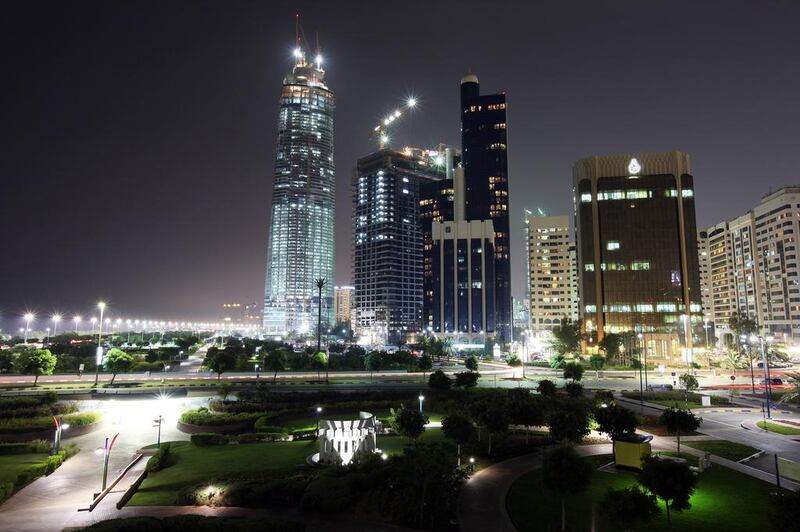ABU DHABI // All crowded places will have to conform to new safety and security rules to ensure public safety from crime and terrorism is maintained as the emirate grows.
The guidelines, detailed by the Abu Dhabi Urban Planning Council (UPC), will apply from Wednesday for any planned developments, such as hotels and malls.
Existing gathering places that do not follow the new rules will have to be upgraded.
Poorly lit spaces, lack of surveillance, uncontrolled escape routes and inadequate access for emergency vehicles are among the checklist developers and owners will have to address.
“We want to create communities free of the fear of crime,” said Hassan Al Hassani, senior associate planner of safety and security at the UPC.
Mr Al Hassani said the rules, outlined in the Safety and Security Planning Manual, aimed to keep the emirate safe and secure as its population grew under its Vision 2030 plan.
“Everyone knows Abu Dhabi is a safe and secure place and that is the purpose of this manual – to ensure that Abu Dhabi remains safe and secure as our country grows and diversifies,” he said.
“The manual will ensure the creation of safe, secure and sustainable communities for new developments and existing areas.”
The rules were drawn up in collaboration with agencies including Abu Dhabi Police, the Armed Forces and Civil Defence.
Sultan Al Ketbi, associate of safety and security planning at the UPC, said there were three aspects to any crime – the location, the victim and the offender.
“What we are focusing on is location,” Mr Al Ketbi said. “We do not deal with criminals or victims because other entities deal with those elements.
“Our mandate is to deal with location from the planning and design practice. The location and design of buildings and areas have a contribution to reduce crime.”
UPC officers will inspect existing developments and those being built to determine which do not meet the new criteria.
A deadline for when each development must conform to the rules will be determined case by case, said Mr Al Hassani. Any retrofitting costs will have to be met by the developer.
Falah Al Ahbabi, general manager of the UPC, said the guidelines would cover access and connectivity, structure and spatial layout, ownership, surveillance, activity, physical security, public image and adaptability.
Mr Al Ahbabi said the manual, which took nine months to compile, followed a major study of community safety and protective security at international, regional and local levels.
“While the manual does not set out to offer detailed guidance for each sector, it presents fundamental principles and guidance that are applicable to a large geographical area and a wide range of projects,” he said.
“It intends to be a clear starting point to identify those projects that shall be treated with high priority in regards to the incorporation of safety and security features.”
Maj Gen Obaid Al Ketbi, deputy general commander of Abu Dhabi Police, said the guidelines would mean fewer victims of crime.
“It is a vital tool to help enhance living standards and national identity by promoting safety and security in building and landscape design in new and existing communities,” Gen Al Ketbi said.
The rules will apply to hotels, resorts, restaurants, cafes, shopping malls, souqs, markets, leisure clubs, exhibition centres, tourist attractions, religious sites and places of worships, transport stations, cinemas and schools and universities.
jbell@thenational.ae






